UN Women presents new members of the Civil Society Advisory Group for Latin America and the Caribbean
Date:
UN Women is pleased to announce seven new members of its Civil Society Advisory Group for Latin America and the Caribbean, in compliance with the due process of partially renovating the Group as expected this year.
The new civil society advisors, who will formally assume their roles in October, are:
| Alma Espino – Uruguay
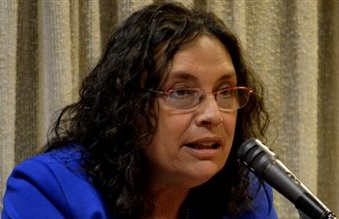 Economist, researcher and professor of the Faculty of Economics and Administration of the University of the Republic of Uruguay, and member of the National System of Researchers. Since 1997 she coordinates the Area of "Gender and Development of the Center for Interdisciplinary Development Studies", Uruguay (CIEDUR). She is lecturer of the Regional Training Program on Gender and Public Policies (PRIGEPP-FLACSO) and part of the Latin American Working Group on Gender, Macroeconomics and International Economy. Additionally, she is member of the "International Association for Feminist Economics". |
| Ana Carcedo - Costa Rica
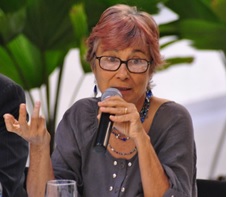 Feminist activist and academic, founder and President of the Feminist Center for Information and Action (CEFEMINA). Coordinator of the Central American Observatory for the Eradication of Femicide of the Feminist Central American Network against Violence against Women. She is professor of the Master's Programme in Women's Studies of the University of Costa Rica and has a wide experience as researcher, especially in the topics of violence against women, feminist economy, and women and migration. Born in Madrid, Costa Rican resident for 41 years. |
| Denise Dora – Brasil
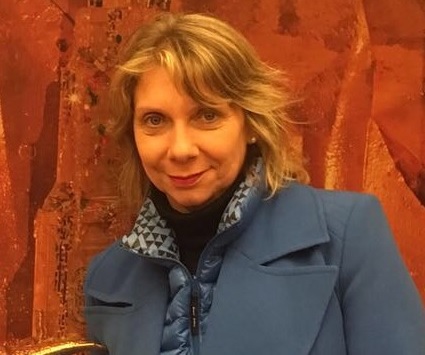 Lawyer and human rights activist in Brazil. She holds a LLM in International Human Rights Law from University of Essex/UK, and a MA in History and Politics from Foundation Getulio Vargas/Rio de Janeiro, Brazil. She is currently leading a new Human Rights Law Firm in Porto Alegre, Brazil. Denise Dora is also on the Board of Directors of the Brazil Human Rights Fund and THEMIS - Gender and Justice. |
| Line Bareiro – Paraguay
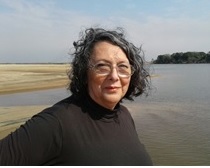 Lawyer and feminist political scientist. She has experience as researcher of the Political Science Institute of the University of Heidelberg and as professor of post-graduate studies in Spain and five Latin American countries. She has designed equality policies in Costa Rica, Uruguay and Paraguay. Co-founder of the Center of Documentation and Studies of the Women Coordination of Paraguay, of "Decidamos" and of the Network Against all Forms of Discrimination. She served as Expert of the CEDAW Committee in the period 2011-2014. Currently she is professor of the Master's Programme on Gender and Public Policies (PRIGEPP) and Academic Director of the post-graduate course on Gender and Justice, both of FLACSO Argentina. |
| Otilia Lux de Cotí – Guatemala
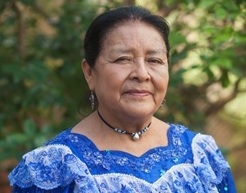 Guatamalan Maya k´iche´. Holds a degree in Educational Administration. Member of the Management Team of the Fund for the Development of Indigenous Peoples of Latin America and the Caribbean (FILAC), and the Group Democracy Alert, Scenarios for the future of democracy in Latin America 2015-2030. Professor in graduate courses for indigenous women (UNAM-Mexico) and of the Indigenous Intercultural Chair of the FILAC. Former Member of Congress and Minister of Culture and Sports in Guatemala. She has also served as Representative of Guatemala before the Executive Council of UNESCO, as expert in the UN Permanent Forum for Indigenous Issues, as Comissioner of the Commission of Historical Truth of Human Rights Violations in Guatemala, as well as representative of the Global Caucus of Indigenous Women of the World Conference on Indigenous Peoples. She has also held the post of Executive Director of the International Indigenous Women’s Forum (IIWF). |
| Paola Yáñez – Bolivia
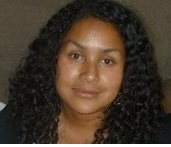 Afro-Bolivian activist. She held the post as Executive Director of the Afro-Bolivian Center for Integral Community Development (CADIC), facilitator of issues regarding gender, identity, and women’s, indigenous peoples’ and Afro-descendant populations rights. Currently she serves as Coordinator of the Andean sub-region of the Network of Afro-Latin, Afro-Caribbean and Diaspora Women. |
| Stephanie Leitch - Trinidad y Tobago
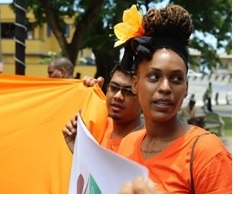 Stephanie Leitch is the Founder and Co-Director of WOMANTRA, a feminist organization in Trinidad and Tobago led by young women. She has been involved in advocacy for the rights of women, girls and sexual minorities for the past 10 years, concentrating also on the intersections of sexual and racialized oppression. She studied and taught at the Institute for Gender and Development Studies at the University of the West Indies and has published work on gender, identity and movement building. She is currently Adolescent and Youth Coordinator at UNFPA in Trinidad, through a local internship program. |
The following were selected as alternate members of the Advisory Group:
| Elena Reynaga - Argentina
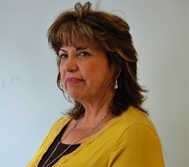 Sex worker that started her activism in 1994, making a stand against the constant human rights violations suffered by sex workers. Founder of the Association of Sex Workers in Argentina (AMMAR) and the Network of Women Sex Workers of Latin America and the Caribbean (RedTraSex) that brings together 14 countries of the region, of which she is currently Executive Secretary. She is recognized for positioning the demands of sex workers in key international and regional spaces. In 2008 she was nominated “outstanding personality” by the legislature of Buenos Aires, and in 2014 that National Senate awarded her a certificate of honor for her human rights work. |
| Esther Ramírez - México
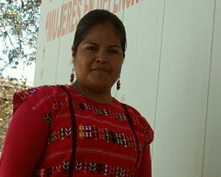
Mexican Triqui. From Rio Metates, Juxtlahuaca, Oaxaca. Lawyer. Member of the Association NAXIHI NA XINXE NA XIHI MUJERES EN DEFENSA DE LA MUJER A.C. Coordinator of the Area for Organizational Strengthening of the Indigenous Women’s House Project “Ve’e Naxihi”. On the national level, she is part of the National Coordination of Indigenous Women, the National Network of Indigenous Women’s Houses, and the Network of Indigenous Women Lawyers. |
| Joyce Hewett – Jamaica
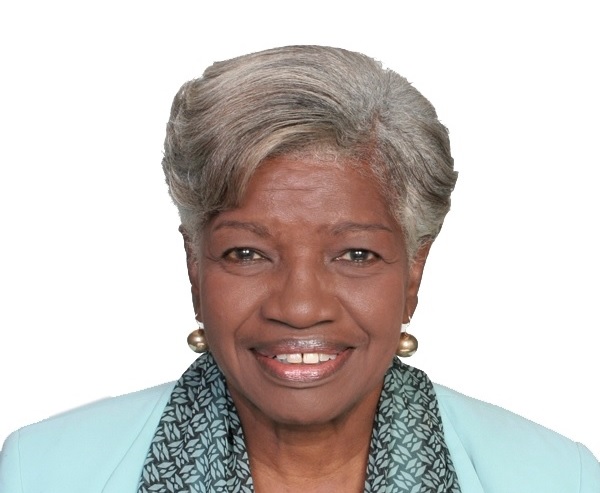 Advocate for women’s rights and human rights, with work experience in Jamaica, the Caribbean region and the Americas to attain greater protection for and to promote the advancement of women. She has designed and implemented a multitude of training and capacity-building workshops, seminars, and public campaigns to promote Gender Equality; and to focus on the elimination of all forms of violence against women including victims of human trafficking and those who suffer from discriminatory stigma and violence as a result of living with HIV/AIDS. She also serves as a Consultant Gender Specialist for government agencies and NGOs. |
| Shari García – Colombia
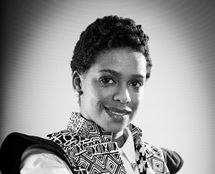 Economist and Specialist in International Development Cooperation. Worked for the Institute for Pan-Iberian Studies, Spain, and the International Institute for Caribbean Studies. Researcher of the Latin American Cooperation and Development School. Member of the Editorial Committee of the platform Juventudconvoz.org, the Network of Afro-Latin, Afro-Caribbean and Diaspora Women, and the Association of Afro-Colombian Women (AMUAFROC). Participant in the First Summit of Afro-descendants of the Americas, the Global Summit of Afro-descendants, and that of Afro-Descendant Youth, as well as in the Summit of the Americas in Colombia and Panama. Economist and Specialist in International Development Cooperation. Worked for the Institute for Pan-Iberian Studies, Spain, and the International Institute for Caribbean Studies. Researcher of the Latin American Cooperation and Development School. Member of the Editorial Committee of the platform Juventudconvoz.org, the Network of Afro-Latin, Afro-Caribbean and Diaspora Women, and the Association of Afro-Colombian Women (AMUAFROC). Participant in the First Summit of Afro-descendants of the Americas, the Global Summit of Afro-descendants, and that of Afro-Descendant Youth, as well as in the Summit of the Americas in Colombia and Panama. |
UN Women Civil Society Advisory Groups are bodies established at global, regional and national level with the purpose to facilitate effective, continuous and structured consultations between civil society and UN Women. They provide strategic advice to the organization in its thematic and policy priorities, including in strategic planning and in global normative processes related to women’s rights.
“We are extremely pleased with the incorporation of women of such extense experience and prestige in our Regional Advisory Group”, Luiza Carvalho, Regional Director for the Americas and the Caribbean, affirmed. “This will contribute to strengthen the dialogue that UN Women maintains with the Latin American and Caribbean civil society, which in this moment is crucial in order to preserve and advance women’s and girl’s rights in the region, especially as we focus on implementing the Sustainable Development Goals and that these include a robust gender perspective. The voice, perspective and action of the women’s movement, the feminist movement, will be indispensable in this process”.
UN Women extends a warm welcome to these outstanding civil society representatives and looks forward to their contributions, commitment and working in close alliance for the fulfillment of women’s and girls’ rights.